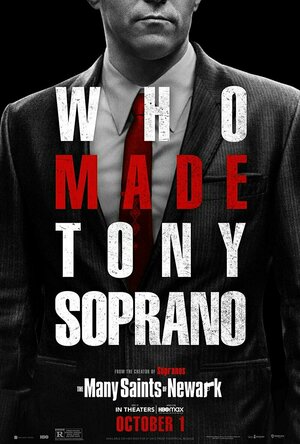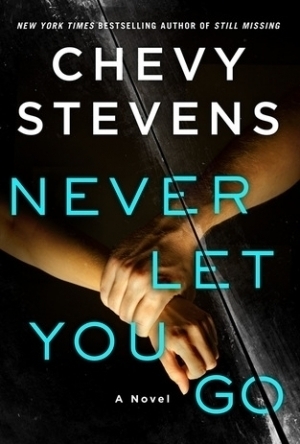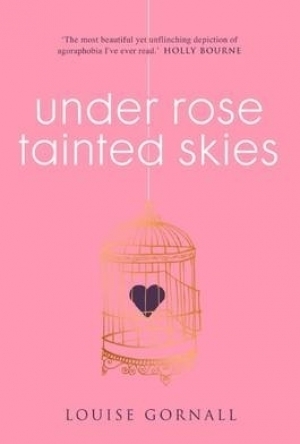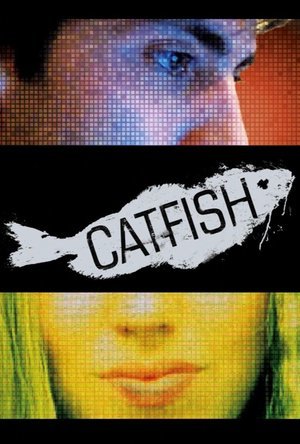Search
Search results
BankofMarquis (1832 KP) rated The Many Saints of Newark (2021) in Movies
Oct 12, 2021
The "non-Sopranos" part of this film worked much better
The new Sopranos prequel film THE MANY SAINTS OF NEWARK is a review-proof film. Most people fall into 1 of 2 camps.
The first, fans of the 1999-2007 landmark HBO series that some (including myself) call one of the best TV series of all time. The folks that fall into this camp will be checking this film out no matter what.
The second are folks that either never saw the series or have only a passing knowledge of it - these folks are (more than likely) gonna take a pass at this film.
And both camps would be right and wrong for THE MANY SAINTS OF NEWARK is a middle-of-the-road film that will be satisfying for SOPRANOS fans, but the part of this film that really, really works well has nothing to do with the series.
Written by Sopranos creator David Chase, TMSON is set in the late 1960’s-early 1970’s and tells the tale of a young Tony Soprano and his introduction to the North Jersey mafia and the charismatic mob boss who he is drawn to.
The first 15 minutes of this film were written specifically for SOPRANOS fans for it is here that you are introduced to younger versions of many of your favorite characters. From Tony to Uncle Junior to Livia (Tony’s Mom) to Pauly Walnuts, Silvio and “Big Pussy” they are all there - along with a few others you don’t know (and it is not a spoiler to say, there is a reason that they never made it to the TV series). You are also introduced to Tony’s Father Johnny Soprano, Mob Boss “Hollywood” Dick Moltisanti and the center of this film, the son of the Boss “Uncle” Dickie Moltisanti (father of future TV Series character Christopher).
It’s an enjoyable enough introduction, but it is nothing new. The characters sit around, talk, act tough and eat. Something that we’ve seen in countless mob movies before. Chase and Director Alan Taylor (THOR: THE DARK WORLD) appear somewhat bored with this part of the film - almost as if they are saying “here they all are, enjoy this for we have a more interesting story to tell”. This first 15 minutes of the film seem to go on forever.
And then the movie - and Chase’s ideas and Taylor’s Direction - kick in.
And this is where TMSON begins to escalate as the story splits into 2 parts - the first following Dickie (Alessandro Nivola) and the 2nd following one of his “runners” (Leslie Odom, Jr.) who is destined to become a powerful boss of the “Black Mafia”.
It’s a smart juxtaposition of story, but unfortunately for SOPRANO’s fans, the first story (following Dickie) and including most of the Soprano’s characters is the less interesting of the 2 stories. It is the journey of Leslie Odom, Jr.’s character that makes for a more compelling story. It is as if Chase had an interesting idea for a mob film but knew he would not be able to get it made unless he tied it somewhat to a Sopranos story.
Leslie Odom Jr. is magnetic as Harold McBrayer, the former numbers runner for Dickie that has an awaking through the Black Power movement of the late ‘60’s and becomes a formidable mob boss in his own right. This half of the movie/story is intriguing and interesting for you never know in what direction it is going to land. This “B” story is free to be whatever it wants/needs to be and this freedom elevates it.
The same cannot be said for the “A” story - the journey of Dickie Moltisanti. Alessandro Nivola is charming enough as this sadistic, sociopathic mobster, but he is saddled with too much TV show baggage to become a character on his own. Specifically his mentorship and (ultimate) disassociation with the young Tony Soprano (played by Michael Gandolfini, the son of the late James Gandolfini who played Tony in the TV series). I felt like these characters were burdened with the weight of the TV show and the need to pay homage to what will be coming in their lives via the TV show and to shoehorn in each character along the way.
Consequently some great actors like Vera Farmiga (Tony’s mother Livia), Jon Bernthal (Tony’s father), and Corey Stoll (as Uncle Junior) are all filming extended cameos. They do a good (enough) job bringing the essence of the characters from the TV Series to this film, but they just don’t have enough to do. I would love for these 3 to spin-off on their own.
The same can be said for Billy Magnussen (Pauly), John Magaro (Silvio) and Samson Moeakiola (Big Pussy). They all do a nice job bringing the younger versions of these characters to life (especailly Magaro) but they just don’t have enough to do.
And then there is Ray Liotta’s over-the-top performance as Mob Boss “Hollywood” Dick Moltisanti. Ove-the-top doesn’t even begin to describe the performance he is giving. I will give him credit, though, he does tone it down about 1/2 way through the film, but…geez…the first part…wow.
Ultimately, the failure of the “A” story to captivate dooms this movie to mediocre status. I would have loved for Chase to really sink his teeth into the “B” story - and to let Leslie Odom Jr. really fly as a character and and actor.
But that would have defeated the purpose of making a Sopranos prequel - a prequel that, perhaps, shouldn’t have been made in the first place.
Letter Grade: B
7 stars (out of 10) and you can take that to the Bank(ofMarquis)
The first, fans of the 1999-2007 landmark HBO series that some (including myself) call one of the best TV series of all time. The folks that fall into this camp will be checking this film out no matter what.
The second are folks that either never saw the series or have only a passing knowledge of it - these folks are (more than likely) gonna take a pass at this film.
And both camps would be right and wrong for THE MANY SAINTS OF NEWARK is a middle-of-the-road film that will be satisfying for SOPRANOS fans, but the part of this film that really, really works well has nothing to do with the series.
Written by Sopranos creator David Chase, TMSON is set in the late 1960’s-early 1970’s and tells the tale of a young Tony Soprano and his introduction to the North Jersey mafia and the charismatic mob boss who he is drawn to.
The first 15 minutes of this film were written specifically for SOPRANOS fans for it is here that you are introduced to younger versions of many of your favorite characters. From Tony to Uncle Junior to Livia (Tony’s Mom) to Pauly Walnuts, Silvio and “Big Pussy” they are all there - along with a few others you don’t know (and it is not a spoiler to say, there is a reason that they never made it to the TV series). You are also introduced to Tony’s Father Johnny Soprano, Mob Boss “Hollywood” Dick Moltisanti and the center of this film, the son of the Boss “Uncle” Dickie Moltisanti (father of future TV Series character Christopher).
It’s an enjoyable enough introduction, but it is nothing new. The characters sit around, talk, act tough and eat. Something that we’ve seen in countless mob movies before. Chase and Director Alan Taylor (THOR: THE DARK WORLD) appear somewhat bored with this part of the film - almost as if they are saying “here they all are, enjoy this for we have a more interesting story to tell”. This first 15 minutes of the film seem to go on forever.
And then the movie - and Chase’s ideas and Taylor’s Direction - kick in.
And this is where TMSON begins to escalate as the story splits into 2 parts - the first following Dickie (Alessandro Nivola) and the 2nd following one of his “runners” (Leslie Odom, Jr.) who is destined to become a powerful boss of the “Black Mafia”.
It’s a smart juxtaposition of story, but unfortunately for SOPRANO’s fans, the first story (following Dickie) and including most of the Soprano’s characters is the less interesting of the 2 stories. It is the journey of Leslie Odom, Jr.’s character that makes for a more compelling story. It is as if Chase had an interesting idea for a mob film but knew he would not be able to get it made unless he tied it somewhat to a Sopranos story.
Leslie Odom Jr. is magnetic as Harold McBrayer, the former numbers runner for Dickie that has an awaking through the Black Power movement of the late ‘60’s and becomes a formidable mob boss in his own right. This half of the movie/story is intriguing and interesting for you never know in what direction it is going to land. This “B” story is free to be whatever it wants/needs to be and this freedom elevates it.
The same cannot be said for the “A” story - the journey of Dickie Moltisanti. Alessandro Nivola is charming enough as this sadistic, sociopathic mobster, but he is saddled with too much TV show baggage to become a character on his own. Specifically his mentorship and (ultimate) disassociation with the young Tony Soprano (played by Michael Gandolfini, the son of the late James Gandolfini who played Tony in the TV series). I felt like these characters were burdened with the weight of the TV show and the need to pay homage to what will be coming in their lives via the TV show and to shoehorn in each character along the way.
Consequently some great actors like Vera Farmiga (Tony’s mother Livia), Jon Bernthal (Tony’s father), and Corey Stoll (as Uncle Junior) are all filming extended cameos. They do a good (enough) job bringing the essence of the characters from the TV Series to this film, but they just don’t have enough to do. I would love for these 3 to spin-off on their own.
The same can be said for Billy Magnussen (Pauly), John Magaro (Silvio) and Samson Moeakiola (Big Pussy). They all do a nice job bringing the younger versions of these characters to life (especailly Magaro) but they just don’t have enough to do.
And then there is Ray Liotta’s over-the-top performance as Mob Boss “Hollywood” Dick Moltisanti. Ove-the-top doesn’t even begin to describe the performance he is giving. I will give him credit, though, he does tone it down about 1/2 way through the film, but…geez…the first part…wow.
Ultimately, the failure of the “A” story to captivate dooms this movie to mediocre status. I would have loved for Chase to really sink his teeth into the “B” story - and to let Leslie Odom Jr. really fly as a character and and actor.
But that would have defeated the purpose of making a Sopranos prequel - a prequel that, perhaps, shouldn’t have been made in the first place.
Letter Grade: B
7 stars (out of 10) and you can take that to the Bank(ofMarquis)
Acanthea Grimscythe (300 KP) rated Demon Seed: A novel of terror to horrify you this Halloween in Books
May 16, 2018
One of the things I’ve noticed when I’m running around between thrift stores is an abundance of Dean Koontz novels. That said, I’ve definitely been stockpiling them up, and the first one I read out of my Koontz pile is Demon Seed. Demon Seed is told from a rather peculiar perspective: that of a computer with artificial intelligence. Before I delve deeper into my thoughts on Demon Seed, I would like to note that this is a copy of the 1997 release, and not the original novel published in 1973. There are differences in the two books, however because I have not happened to lay hands upon the original version, I am unable to compare or contrast their contents. As such, my review is based solely upon the second version of the book, which is told solely from the perspective of Proteus, the artificial intelligence program that is all too frighteningly real.
The idea of a computer striking fear into someone’s heart is a bit of an oddball, but with the idea of artificial intelligence an all too possible reality, fear over what could happen should the AI take control of itself and evolve is real. In Demon Seed that science is taken too far when Proteus takes control of his own programming and not only stalks the recently divorced Susan Harris, but holds her captive within her own home. With a plan for the ideal race of humans on its mind, Proteus sets forth on a horrifying adventure to create for himself the perfect body, and poor Susan is a key player in his endeavor.
As a premise, especially for something originally written in the early 70’s, the idea behind Demon Seed is intriguing. I find Proteus to be a very disturbing character, and the way in which Koontz pens Proteus gives me chills. I remember once, a long time ago, having a similar feeling while reading a novel by P. T. Deutermann, in which the occasional chapter was in the killer’s perspective. I don’t remember the name of the book, only the fact that I was left nerve-wracked. Koontz’s Proteus is not too far off from that mark and the mere fact that Koontz is able to capture that essence of a true sociopath with an inanimate object (if I can really call Proteus that) probably factors into my opinion on the book the most. The other characters, and to some degree Susan as well, strike me as a bit one-dimensional. They have a single, solitary purpose and while they possess wildly different backgrounds, the way in which the story progresses does not leave room for the development of feelings toward the characters.
Demon Seed is an extremely quick read, and if you’ve got the time to sit for a few hours and thumb through its pages, I’d definitely recommend it. While it isn’t among my favorite books, and only receives a passing “meh” score from me, it was enjoyable. The linear plot line, told from a single, solitary perspective, makes it an easy read as well. There is also a movie adaptation of the novel, but it is not presently on my to-watch list.
The idea of a computer striking fear into someone’s heart is a bit of an oddball, but with the idea of artificial intelligence an all too possible reality, fear over what could happen should the AI take control of itself and evolve is real. In Demon Seed that science is taken too far when Proteus takes control of his own programming and not only stalks the recently divorced Susan Harris, but holds her captive within her own home. With a plan for the ideal race of humans on its mind, Proteus sets forth on a horrifying adventure to create for himself the perfect body, and poor Susan is a key player in his endeavor.
As a premise, especially for something originally written in the early 70’s, the idea behind Demon Seed is intriguing. I find Proteus to be a very disturbing character, and the way in which Koontz pens Proteus gives me chills. I remember once, a long time ago, having a similar feeling while reading a novel by P. T. Deutermann, in which the occasional chapter was in the killer’s perspective. I don’t remember the name of the book, only the fact that I was left nerve-wracked. Koontz’s Proteus is not too far off from that mark and the mere fact that Koontz is able to capture that essence of a true sociopath with an inanimate object (if I can really call Proteus that) probably factors into my opinion on the book the most. The other characters, and to some degree Susan as well, strike me as a bit one-dimensional. They have a single, solitary purpose and while they possess wildly different backgrounds, the way in which the story progresses does not leave room for the development of feelings toward the characters.
Demon Seed is an extremely quick read, and if you’ve got the time to sit for a few hours and thumb through its pages, I’d definitely recommend it. While it isn’t among my favorite books, and only receives a passing “meh” score from me, it was enjoyable. The linear plot line, told from a single, solitary perspective, makes it an easy read as well. There is also a movie adaptation of the novel, but it is not presently on my to-watch list.
Phillip McSween (751 KP) rated Point Break (1991) in Movies
Jan 17, 2018
Not Bad
My buddy who recommended Point Break asked for my thoughts almost immediately after I watched it. In a word: Fun. No, it's not going to blow your mind or give you chills, but it's a great film to watch if you're just trying to have a good time. It's like Fast and the Furious before Fast and the Furious became Fast and the Furious. Oh yeah, and with surfer dudes.
Point Break can be a bit over the top at times. One scene in particular involving a chase scene where someone literally threw a dog at Keanu Reeves left me scratching my head and chuckling, but I'm pretty sure I wasn't supposed to be laughing at that point. The plot holes threw me off just as much. Spoiler Alert In the Form of a Question: After Johnny Utah's cover is blown, why the hell is he still hanging out with the bankrobbers?
After a slow start, I managed to find myself engaged in what was unfolding. Keanu Reeves got off to a slow start as well in his role as Johnny Utah, but found his way midway through. It was almost like this was the film where he learned how to act, but director Kathryn Bigelow didn't notice until they were well past the point of reshoots. It doesn't kill the movie, not by a longshot, especially considering its setting.
The ending was extremely ambiguous and, ten years ago, probably would have ruined the entire film for me. Now, it left me asking myself, "What does this mean exactly?" My answer in a sec...
For those of you like me that are new to the film, Point Break is the story of a detective trying to take down a gang of surfers that have become notorious on the bank-robbing circuit as the Ex-Presidents. The film has some fun action sequences, including a house raid midway through that I really enjoyed. I also thought Bigelow captured some powerful shots when it came to expressing the love and power of the ocean. I would love to see this film shot in IMAX today. And I said this film, not the god-awful remake. My favorite shot takes place at a gas station. Bodhi (Patrick Swayze) is burning a car (destroying evidence) to the ground using a gas pump and a lighter. For some reason, it reminded me of the one scene I enjoyed in Batman Vs. Superman: Dawn of Justice where the courtroom explodes and just Superman is left among the flames. Scenes like this, no matter how good or bad a film is, stay etched in your memory for a long time.
So what were my thoughts on the ending? I feel like the waves got the better of Utah and he succumbed to their call. He got a taste of a life that was more easygoing and peaceful. Less rules and restrictions. Ultimately, it was enough for him to throw everything else (badge included) away. And yes, I think he does end up staying with Tyler (Lori Petty).
Glad I saw this film. I give it a 77.
Point Break can be a bit over the top at times. One scene in particular involving a chase scene where someone literally threw a dog at Keanu Reeves left me scratching my head and chuckling, but I'm pretty sure I wasn't supposed to be laughing at that point. The plot holes threw me off just as much. Spoiler Alert In the Form of a Question: After Johnny Utah's cover is blown, why the hell is he still hanging out with the bankrobbers?
After a slow start, I managed to find myself engaged in what was unfolding. Keanu Reeves got off to a slow start as well in his role as Johnny Utah, but found his way midway through. It was almost like this was the film where he learned how to act, but director Kathryn Bigelow didn't notice until they were well past the point of reshoots. It doesn't kill the movie, not by a longshot, especially considering its setting.
The ending was extremely ambiguous and, ten years ago, probably would have ruined the entire film for me. Now, it left me asking myself, "What does this mean exactly?" My answer in a sec...
For those of you like me that are new to the film, Point Break is the story of a detective trying to take down a gang of surfers that have become notorious on the bank-robbing circuit as the Ex-Presidents. The film has some fun action sequences, including a house raid midway through that I really enjoyed. I also thought Bigelow captured some powerful shots when it came to expressing the love and power of the ocean. I would love to see this film shot in IMAX today. And I said this film, not the god-awful remake. My favorite shot takes place at a gas station. Bodhi (Patrick Swayze) is burning a car (destroying evidence) to the ground using a gas pump and a lighter. For some reason, it reminded me of the one scene I enjoyed in Batman Vs. Superman: Dawn of Justice where the courtroom explodes and just Superman is left among the flames. Scenes like this, no matter how good or bad a film is, stay etched in your memory for a long time.
So what were my thoughts on the ending? I feel like the waves got the better of Utah and he succumbed to their call. He got a taste of a life that was more easygoing and peaceful. Less rules and restrictions. Ultimately, it was enough for him to throw everything else (badge included) away. And yes, I think he does end up staying with Tyler (Lori Petty).
Glad I saw this film. I give it a 77.
Kristy H (1252 KP) rated Never Let You Go in Books
Jan 22, 2018
Lindsey Nash has not had the easiest of lives.
She escaped in the dark one night with her six-year-old daughter, Sophie, and just a few of their possessions. They were running from Andrew, Lindsey's drunken, abusive, and possessive husband. Lindsey knew that it was only a matter of time before Andrew killed her, leaving Sophie without her mom. But the night the two disappear, something else happens: a drunken Andrew gets behind the wheel, crashes his vehicle, and kills another woman. The accident puts him in prison for 10 years, giving Lindsey a small sense of freedom, but it's short-lived. Before she knows it, he's out, and headed for the town where Lindsey and Sophie have started over. Strange things start happen, and Lindsey is terrified for her life again--and Sophie's. Andrew claims prison has changed him, but Lindsey can't believe it. How will she and her daughter ever be safe?
This is my fourth Stevens book, and I know by now that she will keep you up late, frantically turning the pages, wondering what will happen. Of the ones I've read, I still think That Night is my favorite, but this one was quite an enjoyable and fast-paced read as well. I blew through it on vacation in about 24 hours, and it had a chilling creepiness to it that made me feel like I should be looking over my shoulder or continually pulling the curtains shut.
First, let's just put out there, as with most of Stevens' books, a big warning for abuse triggers. Please make that known to anyone who might be affected by such a storyline.
One of the best things about this novel was the way Stevens slowly unfurled bits of the plot, making you go "wow" each time something was revealed. The book is divided into three parts, and the first one switches between the present and the past, showcasing some of Lindsey and Andrew's abusive marriage. It's very effective. In the later parts, we hear from both Lindsey and Sophie, who is now a nearly grown teenager. Again, it's a compelling storytelling tool and allows Stevens to work the unreliable narrator angle. Is Lindsey just imagining all this? Can we trust her? Has she just brainwashed Sophie against her father?
The novel sets up a series of suspects, and I admit that I guessed "who did it" before page 100, but I still enjoyed the book immensely. It took me longer to work out why, and I was quite engrossed in the characters. I liked both Lindsey and Sophie, though I didn't love them or feel particularly attached to either, but I so enjoyed the mechanics of the story and what was going to come next that I was completely engaged nonetheless. The novel is very chilling, very eerie, and written so vividly that you can quite imagine many of its more frightening and suspenseful scenes. I can easily see it being made into a movie where I would be peeking tensely through my sleeves.
She escaped in the dark one night with her six-year-old daughter, Sophie, and just a few of their possessions. They were running from Andrew, Lindsey's drunken, abusive, and possessive husband. Lindsey knew that it was only a matter of time before Andrew killed her, leaving Sophie without her mom. But the night the two disappear, something else happens: a drunken Andrew gets behind the wheel, crashes his vehicle, and kills another woman. The accident puts him in prison for 10 years, giving Lindsey a small sense of freedom, but it's short-lived. Before she knows it, he's out, and headed for the town where Lindsey and Sophie have started over. Strange things start happen, and Lindsey is terrified for her life again--and Sophie's. Andrew claims prison has changed him, but Lindsey can't believe it. How will she and her daughter ever be safe?
This is my fourth Stevens book, and I know by now that she will keep you up late, frantically turning the pages, wondering what will happen. Of the ones I've read, I still think That Night is my favorite, but this one was quite an enjoyable and fast-paced read as well. I blew through it on vacation in about 24 hours, and it had a chilling creepiness to it that made me feel like I should be looking over my shoulder or continually pulling the curtains shut.
First, let's just put out there, as with most of Stevens' books, a big warning for abuse triggers. Please make that known to anyone who might be affected by such a storyline.
One of the best things about this novel was the way Stevens slowly unfurled bits of the plot, making you go "wow" each time something was revealed. The book is divided into three parts, and the first one switches between the present and the past, showcasing some of Lindsey and Andrew's abusive marriage. It's very effective. In the later parts, we hear from both Lindsey and Sophie, who is now a nearly grown teenager. Again, it's a compelling storytelling tool and allows Stevens to work the unreliable narrator angle. Is Lindsey just imagining all this? Can we trust her? Has she just brainwashed Sophie against her father?
The novel sets up a series of suspects, and I admit that I guessed "who did it" before page 100, but I still enjoyed the book immensely. It took me longer to work out why, and I was quite engrossed in the characters. I liked both Lindsey and Sophie, though I didn't love them or feel particularly attached to either, but I so enjoyed the mechanics of the story and what was going to come next that I was completely engaged nonetheless. The novel is very chilling, very eerie, and written so vividly that you can quite imagine many of its more frightening and suspenseful scenes. I can easily see it being made into a movie where I would be peeking tensely through my sleeves.
Kristy H (1252 KP) rated Under Rose-Tainted Skies in Books
Feb 13, 2018
Norah is a mentally ill teen struggling with agoraphobia and OCD. She lives with her mom and hasn't attended school in over four years -- in fact, she really hasn't had what society would deem a "normal" outing in that time. Her interactions are with her mom, her therapist, and the online world: watching her former friends live their lives via social media. When a new boy moves in next door, Norah doesn't expect much to change. But when Luke catches Norah trying to fish in groceries left outside on her porch, he helps her. The two slowly begin to interact, and a friendship blossoms. Still, despite the movie "dates" they have at Norah's house and their many chats, Norah is trapped in her own insecurities and fears: Luke deserves a "normal" girl, who can go outside to parties, and who isn't too scared of germs to kiss. What does the future hold in store for Norah and Luke?
This was a lyrical novel offering a rather unflinching portrait of mental illness. (I must point out up front that there's a self-harm/cutting trigger.) The writing is beautiful, almost falling over the line of too flowery at times. Norah is an engaging heroine: a real person living her life with mental illness. The novel truly tries to portray her OCD and agoraphobia in a real (yet humorous at times - it's not just as if you're reading a medical manual) manner. There are some incredibly important passages in this book about how, while Norah may not look sick or mentally ill, she is. I enjoyed her character immensely.
Unfortunately, some of my love of Norah was diminished by slightly unrealistic and odd plotlines. Maybe it's just me, but I was immensely bothered by little things - Luke's dad getting a job at the TSA for 8 weeks (unless that was a long time ago, basically impossible in the security clearance era). In turn, Norah's mom undergoes a hospital stay that seems oddly inserted; further, if the family has money, why is poor, scared Norah forced to stay alone for huge chunks of time without any assistance or company? Luke also comes across as too good to be true sometimes, making me question his character, even when I wanted to buy into the love story. Finally, the ending hinges on a weird twist and seemed to tie things up a little too easily for how strongly the book was presenting Norah's illness throughout.
The angsty teen love genre is certainly in full swing lately and adding in mental illness is popular as well (I think [b:Everything, Everything|18692431|Everything, Everything|Nicola Yoon|https://images.gr-assets.com/books/1450515891s/18692431.jpg|26540216] is my favorite, where it worked so beautifully). Still, I certainly wouldn't not recommend this novel. It's well-written, portrays its mental illnesses very well, and the character of Norah is worth the read alone. There are some flaws, yes, but I did enjoy the book overall. 3.5 stars.
I received a copy of this novel from the publisher and Edelweiss (thank you!) in return for an unbiased review; it is available as of 01/03/2017.
This was a lyrical novel offering a rather unflinching portrait of mental illness. (I must point out up front that there's a self-harm/cutting trigger.) The writing is beautiful, almost falling over the line of too flowery at times. Norah is an engaging heroine: a real person living her life with mental illness. The novel truly tries to portray her OCD and agoraphobia in a real (yet humorous at times - it's not just as if you're reading a medical manual) manner. There are some incredibly important passages in this book about how, while Norah may not look sick or mentally ill, she is. I enjoyed her character immensely.
Unfortunately, some of my love of Norah was diminished by slightly unrealistic and odd plotlines. Maybe it's just me, but I was immensely bothered by little things - Luke's dad getting a job at the TSA for 8 weeks (unless that was a long time ago, basically impossible in the security clearance era). In turn, Norah's mom undergoes a hospital stay that seems oddly inserted; further, if the family has money, why is poor, scared Norah forced to stay alone for huge chunks of time without any assistance or company? Luke also comes across as too good to be true sometimes, making me question his character, even when I wanted to buy into the love story. Finally, the ending hinges on a weird twist and seemed to tie things up a little too easily for how strongly the book was presenting Norah's illness throughout.
The angsty teen love genre is certainly in full swing lately and adding in mental illness is popular as well (I think [b:Everything, Everything|18692431|Everything, Everything|Nicola Yoon|https://images.gr-assets.com/books/1450515891s/18692431.jpg|26540216] is my favorite, where it worked so beautifully). Still, I certainly wouldn't not recommend this novel. It's well-written, portrays its mental illnesses very well, and the character of Norah is worth the read alone. There are some flaws, yes, but I did enjoy the book overall. 3.5 stars.
I received a copy of this novel from the publisher and Edelweiss (thank you!) in return for an unbiased review; it is available as of 01/03/2017.
Chris Sawin (602 KP) rated Catfish (2010) in Movies
Jun 22, 2019 (Updated Jun 23, 2019)
Nev Schulman is a photographer of dance that catches the eye of an 8 year old girl named Abby when one of his pictures is published nationally. She sends Nev a painting of his published picture, which begins a rather incredible friendship. Nev eventually gets the chance to talk to Abby's mom, Angela, and her older sister, Megan. Megan and Nev really start to hit it off and a relationship begins to form. That is until many of the things Megan has been telling Nev begin drifting further and further from the truth. Nev decides to fly to Michigan and get the answers he so desperately desires.
If somebody made me choose a favorite film genre, psychological thriller would quite possibly be my answer. Films that include incredible twist endings (Oldboy) or have elaborate storylines that make you think (Inception) are definitely some of the best times to be had when it comes to an entertaining movie experience. Catfish was marketed as a film that was not only a thriller, but also contained "a shattering conclusion" that was compared to Alfred Hitchcock. In the end, it didn't really have either of those things.
Catfish had this vibe the entire film like it was leading towards something dark near its conclusion. As Nev makes his way to Michigan, you get more and more anxious as he nears his destination. Even the music gets really unsettling. Is Megan's family going to be a bunch of chainsaw wielding cannibals or have Angela and Vince been keeping a kidnapped girl named Megan chained in their basement for weeks to lead young, single guys out there for them to torture as some sort of twisted way to get off? No, it's nothing like that. Catfish never really became thrilling or even came near diving into dark territory.
What Catfish winds up being is an interesting character study presented as a documentary. The film's heart resides in who Megan really is and how the entire experience affects Nev. Once the pieces of the puzzle are put together and everything falls into place, Catfish turns out to be a very raw, emotional, and heartfelt film. What's intriguing is the film revolves around Facebook and with The Social Network hitting theaters in about two weeks, it seems like a bit of a bold move.
What is arguably the best scene in the film is when it's actually explained why Catfish was chosen as the title in the final minutes. It is a pretty incredible explanation and fits the film perfectly.
Catfish isn't necessarily a bad film, in fact, it's pretty powerful once it really gets going. It probably isn't what you're expecting though. While Catfish is laugh out loud at certain points in the film, at its core, it's a documented love story that mostly resides on the internet. Maybe it just comes from personal experience, the way the film was presented, or the on-screen presence of the characters in the film, but Catfish felt genuine which isn't something that can be said about many films that have come out in 2010.
If somebody made me choose a favorite film genre, psychological thriller would quite possibly be my answer. Films that include incredible twist endings (Oldboy) or have elaborate storylines that make you think (Inception) are definitely some of the best times to be had when it comes to an entertaining movie experience. Catfish was marketed as a film that was not only a thriller, but also contained "a shattering conclusion" that was compared to Alfred Hitchcock. In the end, it didn't really have either of those things.
Catfish had this vibe the entire film like it was leading towards something dark near its conclusion. As Nev makes his way to Michigan, you get more and more anxious as he nears his destination. Even the music gets really unsettling. Is Megan's family going to be a bunch of chainsaw wielding cannibals or have Angela and Vince been keeping a kidnapped girl named Megan chained in their basement for weeks to lead young, single guys out there for them to torture as some sort of twisted way to get off? No, it's nothing like that. Catfish never really became thrilling or even came near diving into dark territory.
What Catfish winds up being is an interesting character study presented as a documentary. The film's heart resides in who Megan really is and how the entire experience affects Nev. Once the pieces of the puzzle are put together and everything falls into place, Catfish turns out to be a very raw, emotional, and heartfelt film. What's intriguing is the film revolves around Facebook and with The Social Network hitting theaters in about two weeks, it seems like a bit of a bold move.
What is arguably the best scene in the film is when it's actually explained why Catfish was chosen as the title in the final minutes. It is a pretty incredible explanation and fits the film perfectly.
Catfish isn't necessarily a bad film, in fact, it's pretty powerful once it really gets going. It probably isn't what you're expecting though. While Catfish is laugh out loud at certain points in the film, at its core, it's a documented love story that mostly resides on the internet. Maybe it just comes from personal experience, the way the film was presented, or the on-screen presence of the characters in the film, but Catfish felt genuine which isn't something that can be said about many films that have come out in 2010.

Nighty Night! - The bedtime story app for children
Book and Education
App
The most popular bedtime story on the App Store! Over 4 million downloads. „App of Year“...

Nighty Night! - The bedtime story app
Book and Education
App
The most popular bedtime story on the App Store! Over 4 million downloads. „App of Year“...
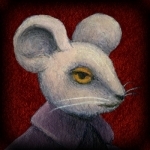
The Nutcracker Musical Storybook
Book and Entertainment
App
Join Clara and The Nutcracker Prince in a fully animated, cinematic storybook adventure of the...

Tiếp thị & Gia đình Magazine
News and Magazines & Newspapers
App
Tin nóng: Ứng dụng iPad và iPhone của Tiếp Thị & Gia Đình, tuần san có số...
